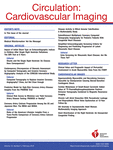
Circulation-Cardiovascular Imaging
Scope & Guideline
Fostering scholarly communication in the heart of medical innovation.
Introduction
Aims and Scopes
- Cardiovascular Magnetic Resonance (CMR) Imaging:
A core focus of the journal is on the use of CMR for diagnosing and managing various cardiac conditions, including myocardial infarction, cardiomyopathies, and valvular diseases. - Computed Tomography (CT) Imaging:
The journal emphasizes the role of CT in assessing coronary artery disease, evaluating cardiac anatomy, and guiding interventional procedures. - Echocardiography:
Echocardiographic techniques and their evolving applications in diagnosing heart disease, particularly in assessing left ventricular function and valvular disorders, are highlighted. - Artificial Intelligence and Machine Learning:
The integration of AI and machine learning in analyzing imaging data for predictive analytics and improving diagnostic accuracy is a growing area of interest. - Multimodality Imaging:
The journal promotes research that combines various imaging techniques to provide comprehensive assessments of cardiac conditions and improve patient outcomes. - Clinical Implications and Outcomes:
Research that connects imaging findings with clinical outcomes, treatment decisions, and prognostic implications is a significant focus area.
Trending and Emerging
- Artificial Intelligence and Machine Learning:
There is a significant rise in the application of AI and machine learning algorithms to enhance the analysis of imaging data, improve diagnostic accuracy, and predict patient outcomes. - Contrast-Free Imaging Techniques:
Emerging research focuses on developing contrast-free imaging methods, particularly in CMR, to reduce risks associated with contrast agents while maintaining diagnostic efficacy. - Radiomics and Imaging Biomarkers:
The integration of radiomics—extracting large amounts of quantitative features from medical images—is gaining traction, particularly in predicting disease progression and treatment responses. - Comprehensive Risk Assessment:
Studies that utilize imaging for comprehensive cardiovascular risk assessment, including the evaluation of coronary artery calcium and plaque characteristics, are increasingly prominent. - Personalized Medicine in Cardiology:
Research aimed at tailoring imaging approaches to individual patient profiles and specific cardiovascular conditions is on the rise, highlighting the move towards personalized healthcare. - Longitudinal and Outcome-Based Studies:
An emphasis on longitudinal studies that assess the impact of imaging findings on long-term patient outcomes and treatment efficacy is becoming more common.
Declining or Waning
- Traditional Imaging Techniques:
There has been a noticeable decrease in studies focused solely on traditional imaging techniques without the integration of advanced technologies or multimodal approaches. - Basic Descriptive Studies:
Research that primarily describes imaging findings without linking them to clinical outcomes or advancements in technique has become less frequent, as the journal shifts towards more impactful studies. - Single Modality Studies:
Papers focusing on a single imaging modality without a multimodal perspective are becoming less common, indicating a trend towards comprehensive imaging strategies that incorporate multiple techniques. - Basic Research in Cardiac Imaging:
Studies that do not translate into clinical applications or fail to address patient-centered outcomes are receiving less attention, reflecting a push towards research with direct clinical relevance.
Similar Journals

Current Cardiovascular Imaging Reports
Fostering Knowledge Exchange in Cardiovascular ImagingCurrent Cardiovascular Imaging Reports, published by SPRINGER, is a notable academic journal within the field of cardiovascular imaging. With its ISSN 1941-9066 and E-ISSN 1941-9074, this journal has been a critical resource since its inception in 2008, aiming to disseminate high-quality research and reviews in the realm of cardiovascular diagnostics and imaging technologies. Though currently categorized within the Q3 and Q4 quartiles for various fields such as Applied Microbiology and Biotechnology, Histology, and Cell Biology, its impact and relevance are growing steadily. Researchers and practitioners can benefit from the insights presented in this journal, especially as it covers advancements and practical applications in cardiovascular imaging techniques crucial for enhancing patient care. Given its ongoing commitment to open access, although not currently available, readers can engage with significant research findings that may inform future studies and applications in cardiology. With plans to converge towards 2024, this journal is poised to facilitate the exchange of knowledge and foster innovation within its dynamic field.
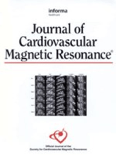
JOURNAL OF CARDIOVASCULAR MAGNETIC RESONANCE
Transforming patient care with pioneering studies in cardiovascular magnetic resonance.JOURNAL OF CARDIOVASCULAR MAGNETIC RESONANCE (ISSN: 1097-6647, E-ISSN: 1532-429X) is a premier open access journal published by Elsevier Science Inc in the United Kingdom, dedicated to advancing the field of cardiovascular imaging through magnetic resonance technology. Since its inception in 1999, the journal has established a robust reputation, evidenced by its ranking in the Q1 category across various fields including Cardiology and Cardiovascular Medicine, Family Practice, and Radiology, Nuclear Medicine and Imaging, as reported in its 2023 assessments. With a strong emphasis on high-quality research and innovations, this journal serves as a vital resource for researchers, clinicians, and students alike, providing vital insights that influence clinical practice and enhance patient care. Its rigorous peer-review process ensures that all contributing authors publish influential studies that are widely disseminated within the academic community. Researchers can access the journal freely since it has been an open access platform since 2008, promoting a wider reach and engagement within the cardiovascular imaging arena.
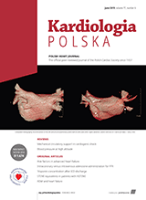
Kardiologia Polska
Pioneering Studies in Cardiology Since 1954Kardiologia Polska, the esteemed journal of the Polish Cardiac Society, has established itself as a vital resource in the field of cardiology and cardiovascular medicine since its inception in 1954. With an ISSN of 0022-9032 and an E-ISSN of 1897-4279, this journal serves as a platform for groundbreaking research and scholarly articles that contribute to the advancement of heart health. Although currently not an open access journal, it remains an essential reference for practitioners and researchers seeking to stay abreast of the latest developments in cardiovascular science. The journal reflects its scholarly depth through a Category Quartile of Q3 and a commendable Scopus ranking at the 48th percentile in its field. Published primarily in Poland, it caters to a global audience eager to explore comprehensive studies spanning clinical cardiology, innovative therapeutic approaches, and emerging cardiovascular trends. Join a thriving academic community by engaging with the invaluable insights and research contributions found within the pages of Kardiologia Polska.

Iranian Journal of Radiology
Connecting Researchers for a Brighter Imaging FutureWelcome to the Iranian Journal of Radiology, a pivotal platform dedicated to advancing the field of radiology, nuclear medicine, and medical imaging. Published by BRIEFLAND, this journal aims to disseminate high-quality original research, reviews, and clinical studies that contribute substantially to the global scientific community. Established in 2008 and spanning until 2024, the journal provides an essential archive of knowledge in a rapidly evolving discipline. Although it currently holds a Q4 quartile ranking in the 2023 Scopus metrics, it serves as an important resource for both emerging and established researchers looking to submit their work. Located in the Netherlands, the journal is committed to open dialogue and collaboration amongst professionals in the field, reflecting its accessibility and relevance to both practitioners and academics. With its continued growth and commitment to quality, the Iranian Journal of Radiology is poised to enhance understanding and innovation in diagnostic imaging.
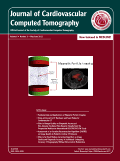
Journal of Cardiovascular Computed Tomography
Unveiling breakthroughs in cardiovascular technology and imaging.The Journal of Cardiovascular Computed Tomography, published by Elsevier Science Inc, is a premier international journal dedicated to the field of cardiovascular imaging and technology. With a strong impact factor, it serves as a pivotal platform for disseminating cutting-edge research and advancements from 2007 to 2024, specifically within the realms of cardiology and radiology. The journal holds a distinguished Q1 ranking in both Cardiology and Cardiovascular Medicine and Radiology, Nuclear Medicine and Imaging, reflecting its influential role in shaping clinical and academic discourse in these fields. Notably, the journal boasts impressive Scopus rankings, placing it in the top decile of its categories, highlighting its high-quality publications and significant contribution to the scientific community. Although it does not operate under an open access model, it ensures robust accessibility for researchers, professionals, and students eager to stay informed about the latest innovations and studies in cardiovascular computed tomography. The Journal of Cardiovascular Computed Tomography is essential for anyone involved in cardiovascular research, offering valuable insights and fostering collaborations across disciplines.
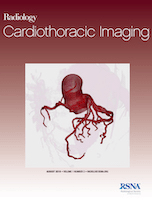
Radiology-Cardiothoracic Imaging
Advancing the Frontiers of Cardiothoracic ImagingRadiology-Cardiothoracic Imaging, published by the Radiological Society of North America (RSNA), is a leading peer-reviewed journal dedicated to advancing knowledge in the field of cardiothoracic radiology. With an ISSN of 2638-6135 and a remarkable 2023 Scopus ranking of #5 out of 333 in its category, the journal stands out in the Q1 tier for Radiology, Nuclear Medicine, and Imaging, showcasing its significant impact and high-quality research contributions. The journal is committed to providing an open platform for innovative research, insightful reviews, and clinical studies that address the complexities of cardiothoracic imaging, thereby facilitating the enhancement of diagnostic and therapeutic strategies. Operating out of Oak Brook, Illinois, the journal aims to engage a diverse audience of researchers, professionals, and students, fostering collaboration and knowledge exchange within this vital area of radiological science. With a convergence of years extending from 2019 to 2024, Radiology-Cardiothoracic Imaging remains at the forefront of emerging trends and findings, making it an essential resource for anyone passionate about the evolving landscape of cardiothoracic imaging.

Insights into Imaging
Pioneering Knowledge in Imaging TechnologiesInsights into Imaging is a prominent open-access journal published by SPRINGER WIEN, specializing in the dynamic fields of radiology, nuclear medicine, and imaging, with its ISSN 1869-4101. Established in 2012, the journal has established itself as a leading platform for disseminating high-quality research and innovative findings, currently holding a prestigious Q1 ranking in its category as of 2023. With an impressive Scopus rank of #42 out of 333 in the medicine discipline, the journal is positioned in the 87th percentile, reflecting its significance and influence in the academic community. Based in Germany, Insights into Imaging not only provides unrestricted access to research but also aims to bridge the gap between scientific inquiry and clinical application, making it an essential resource for researchers, professionals, and students engaged in advancing imaging technologies and practices. The journal’s commitment to fostering knowledge exchange ensures that it remains a critical contributor to the evolving landscape of medical imaging, with articles available from 2012 through 2024.

JACC-Cardiovascular Imaging
Exploring the Depths of Cardiovascular DiagnosticsJACC-Cardiovascular Imaging, published by Elsevier Science Inc, is a premier journal that focuses on the rapidly evolving field of cardiovascular imaging, providing a vital platform for the dissemination of high-quality research and clinical studies. With an impressive impact factor and ranking within the top tier of cardiology and radiology specialties, the journal is recognized for its commitment to advancing knowledge in diagnostic imaging techniques, including echocardiography, MRI, and CT in cardiovascular contexts. Since its inception in 2008 and converging through 2024, JACC-Cardiovascular Imaging has maintained a distinguished position, currently ranking Q1 both in Cardiology and Cardiovascular Medicine as well as in Radiology, Nuclear Medicine and Imaging. This ensures its relevance and influence, as evidenced by its Scopus rankings—ranked #2 in Radiology and #8 in Cardiology, placing it in the top echelons of scholarly output. Although it does not offer open access, the journal's content is crucial for researchers, clinicians, and students who seek to remain at the forefront of cardiovascular imaging advancements.

Journal fur Kardiologie
Advancing Cardiovascular Knowledge, One Study at a Time.The Journal fur Kardiologie, published by KRAUSE & PACHERNEGG GMBH, is a pivotal resource in the field of Cardiology and Cardiovascular Medicine. With an ISSN of 1024-0098 and an E-ISSN of 1680-936X, this journal has played a significant role in disseminating valuable research and clinical studies from 1998 until its coverage discontinuation in Scopus in 2017. Despite its Scopus rank being relatively low at #316/324 in its category, it continues to serve as a platform for emerging cardiology research. The journal’s scope encompasses various aspects of cardiovascular health, providing insights that are crucial for researchers, professionals, and students alike seeking to advance their knowledge and practice in cardiology. While the journal is not open access, its contributions to the field are essential for those looking to stay informed about the latest developments in cardiovascular medicine.
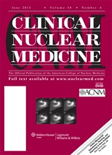
CLINICAL NUCLEAR MEDICINE
Bridging Research and Clinical Applications in Nuclear MedicineCLINICAL NUCLEAR MEDICINE is a premier journal dedicated to the field of nuclear medicine, published by Lippincott Williams & Wilkins. With a history of excellence since its inception in 1978, the journal serves as a vital resource for researchers, healthcare professionals, and students seeking to deepen their understanding of this rapidly evolving discipline. The journal holds a commendable Q2 ranking in both Medicine (miscellaneous) and Radiology, Nuclear Medicine and Imaging, reflecting its significant impact on advancing clinical practices and research. While currently not offered as an open-access publication, CLINICAL NUCLEAR MEDICINE ensures rigorous peer review and high-quality publications, contributing to the broad dissemination of cutting-edge studies and reviews. With its comprehensive scope encompassing both diagnostic and therapeutic nuclear medicine applications, researchers around the globe turn to this journal to stay informed and inspire innovations in patient care for the years leading up to 2024 and beyond.